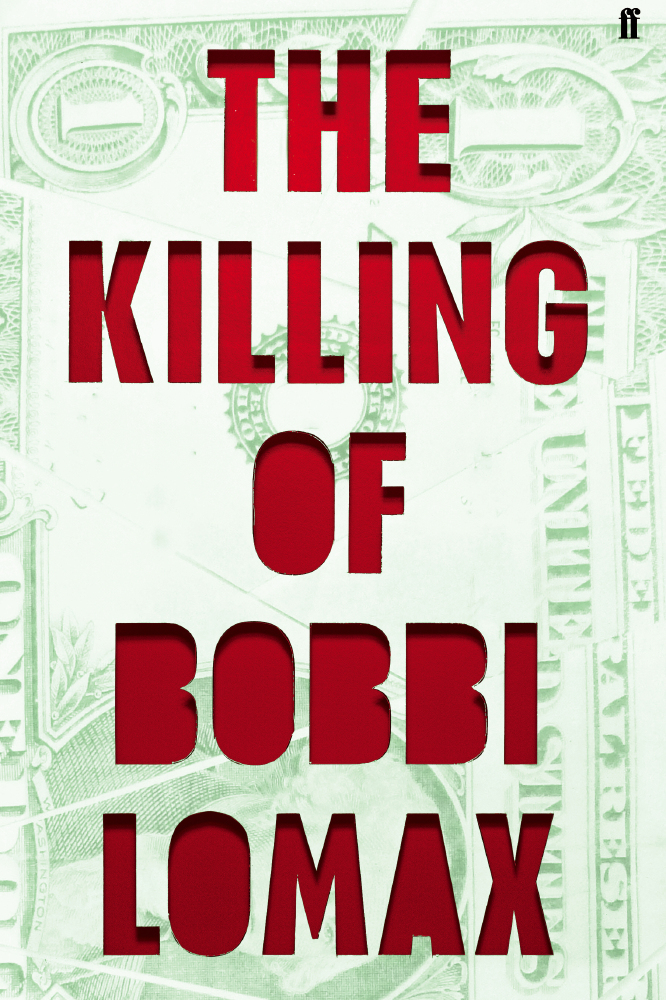Cal Moriarty is an award-winning writer whose screenplays have been optioned by Hollywood producers. Cal ran a screenwriting group at BAFTA and has won an award from the WGGB for 'exceptional encouragement of new writing in the UK.' Currently Cal mentors women writers through the ‪@WoMentoringP group. Her debut novel, The Killing of Bobbi Lomax, which she began on the Faber Writing a Novel Course is released in hardback and ebook in early May.

Cal Moriarty
Keeping it Crucial
When I was first in LA one of the goals I set myself, as a wannabe film writer, was to get onto as many sets as possible. Pay was definitely optional. What I wanted was the experience. I figured it was pretty important to find out what the trenches of film-making did to scripts and, very importantly, what film demanded from scripts and how both these might affect my own writing. One day, after a ridiculously long lighting set up that took over eight hours, and meant no pages had been shot that day, an enraged producer grabbed the script out of the way-out-of-his-depth director's hands and ripped out that 5 page scene, shoved it back at him and said 'shoot around that'. The producer felt the scene was removable. I vowed to avoid writing scenes that were removable. Every single scene and chapter should be absolutely crucial to the overall narrative otherwise it is just a waste of ink and paper. Ensure all your scenes are crucial or shove them in the shredder before someone else does.
Characters Speak, Yes they really do
Your audience or readers will either hear them on screen, on stage or in their own heads if reading your novel. You should read out your characters words as you're writing them and/or after before you send it to anyone you might be hoping to interest in your work whether it's an agent or a publisher. It's the only way to check that you have your characters' voices completely spot on. For a writer absolutely nothing replaces hearing your characters speak. You don't need to be an actor, your readers aren't. In the privacy of your writer's corner, just embrace your inner luvvie so that you can be the best writer you can be. Most novelists are afraid of dialogue, or getting their characters to actually speak to one another. I don't understand why. We all speak all day every day. And, because of that, it's vital our characters' speech sounds real. In theatre and film dialogue is where it's at. Writers with a great ear for dialogue are dramatists Pinter and Mamet, and screenwriters Quentin Tarantino and Shonda Rhimes.
Creating Characters
Everyone will tell you there are a finite amount of plots, and that's probably true, but there are endless characters that writers can create or adapt to make those (often) over-used plots seem completely original. Shakespeare's characters are still relevant and memorable today despite plots that would have seemed familiar even in his day. Lady Macbeth anyone??? A woman who inspires her husband to commit murder in order that she may rule a kingdom. Ruthless and deadly ambition is a great characterisation, particularly in a woman. Unsure how to create great characters then find inspiration for original characters in the people you've met, read about in the newspaper, watched on-screen or a mash-up of all three. Actors will have imagined many things for their character that the writer hasn't told them e.g. what's in their character's pockets/handbag. Knowing this kind of detail about your characters will help you discover who they are, before an actor tells you!
Style
I learnt in film that what makes a writer stand out is the quality and/or originality of their particular writing style, not the quality of the content. It's exceptionally important to establish a style right off the bat. That way, like Tarantino, even when you direct an episode of TV, like the usual fun but formulaic CSI, everyone can tell it's yours. Your readers should be able to pick up your novel and, without seeing the cover, recognise the content as your writing.
Stamina
It's not just eight hour lighting set ups that test your stamina in film or theatre, but having to deal with all those people before you can even hope to reach your audience. The great thing about novel writing is it's really only a few people between your novel and its reader and these days it could just be you and Amazon, if you choose to self-publish. But, please, before you do engage the services of an editor AND a copy-editor. Nothing will kill your career faster than readers paying to read work that's not been put through its paces. It shows you are serious and professional about your career if you put your best possible work before a paying audience. Otherwise it's like opening a play to a paying audience on the first day of rehearsals! Stamina is what will see you through years of poverty and dead end jobs as you focus on achieving your goals.
Movement/Action
The general rule in theatre and film is that characters should never move unless there's a reason to: either a psychological reason or a physical one ie they are pacing because they are besides themselves with grief / tension or they want to get another beer out of the fridge. Otherwise the film/theatre goers would think they were at Wimbledon watching every character bouncing across the screen/stage. Both the physical and psychological 'movements' tell us something about the character. Road movies are a great example of this: it's a physical but also emotional journey with (usually) two or more characters going on a 'journey'. The same rule applies for novel-writing: why is your character moving in the scene and where are they going? Both these answers should tell us something about character, but also move the story forward.
Setting is not Location
Location is Idaho. Setting is a psychiatric ward. There are probably a vast array of settings in Idaho and there is a world of difference than setting your novel in a psychiatric ward than a coffee shop although you might be exploring similar themes, especially if you go to my local coffee shop!
Less Is More
If you are trying to put in a whole host of big words and fancy descriptions, then please remember the commuter who is attempting to enjoy your novel while travelling on the 47 bus wedged between several other passengers. If she is tripping over every word and needless descriptions, trying to find characters and story, then you are going to lose readers fast. Keep your writing clear and precise. If it's a swan we don't need to have a description of its white body, wings or its affinity with water, not unless you are a world class descriptive prose writer. Which, unfortunately, most of us aren't. But, if you are, keep describing that swan, there's a whole flock (sorry) of readers out there who appreciate well-done (not over-done) descriptions. Personally, I'd say it was a swan and just move the story the heck on. On my MA in Playwriting, during a workshop, theatre director Max Stafford Clark challenged us to explain why every word was in our narrative and if it didn't serve a purpose to get rid of it. I have never forgotten that advice.
Finding an Agent
Nowadays all writers need agents. And, here's the rub: agents are desperate for work that they can sell. That's it. They're a business, you give them something they can sell, and they should make every attempt to do so. An agent once told me that agents sell 70% of what they go out with, so even if you get taken on by an agent there's no guarantee your work will sell. But, it has more chance than sitting in your drawer at home. And, remember, the agent works for you, you don't work for them. You pay them, not the other way around, so choose very very carefully as if they don't deliver it can be very difficult to get out of the contract between you.
Write What You Know
I've often heard this, in film, theatre, TV and novels. I'm not sure who originally said this, but it's crap, really, just absolute nonsense. Last time I checked Harold Pinter had never been a homeless man , Tarantino a vengeful female assassin, Shonda Rhimes a male doctor or Stephen King a high-school student named Carrie. Writing is about imagination. Imagination scares a lot of people, particularly anyone in authority. But creative writers can't avoid having one. It's all part and parcel of the job. You should write outside your comfort zone, not within it. If you're a female chef and want to be a writer, why on earth can't you write about a male President? Assuming you've met men, some of them ambitious, and maybe even think they're the President and can do a bit of research? But that 'write what you know' schtick can be fatal for emerging writers. That kind of penny arcade advice is about putting writers in a box and restricting them. The only thing a writer should ever be doing is writing outside the box.
So, go forth and create. It will enrich your life and ours.

The Killing of Bobbi Lomax by Cal Moriarty is out now (Faber & Faber, £12.99)

